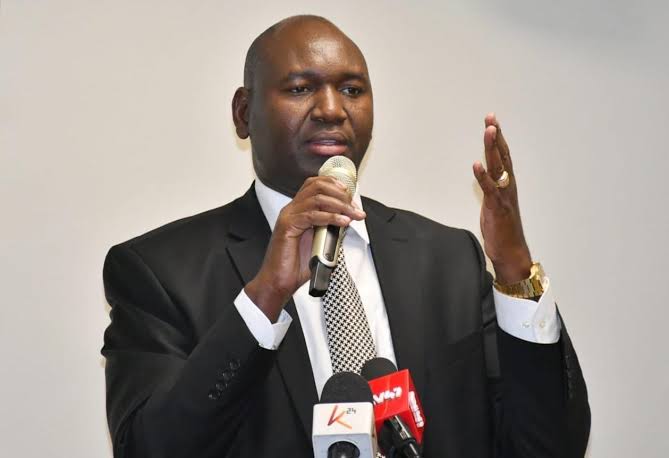Education Ministry blames verification checks for delayed school capitation funds

Education Principal Secretary Julius Bitok explained that the delay followed a special audit by the Auditor General, which raised concerns that funds were not always reaching their intended institutions.
The Ministry of Education has defended the delay in releasing capitation funds, saying the government is carrying out a strict verification exercise to ensure that money goes to the right schools and learners.
Speaking during the Elimu Mashinani event in Narok County on Tuesday, Education Principal Secretary Julius Bitok explained that the delay followed a special audit by the Auditor General, which raised concerns that funds were not always reaching their intended institutions.
“I want to confirm to the country that the government released the first batch of capitation to schools last week. We received the money from the national treasury on Wednesday. Then we started working on a system of verification,” Bitok said.
He noted that the ongoing process involves checking the number of learners, schools, and accounts to guarantee proper allocation.
“As of this morning, we have received verifications from more than 20,000 out of our 30,000 schools. By this coming Friday, with the support of our county and sub-county directors of education, all schools will have verified their information. This is to ensure that the right number of learners get this capitation,” he added.
Despite the assurance, many schools are under financial strain. Some institutions have warned they may be forced to send learners home if the situation does not improve.
Union leaders, including those from the Kenya Union of Post-Primary Education Teachers (KUPPET), have pressed the government to urgently release the money to struggling schools.
The Kenya Secondary Schools Heads Association (KESSHA) has voiced concern that day schools, which depend fully on government funding for daily operations, are the hardest hit.
Boarding schools are also affected, with principals demanding that parents clear fees to keep their children in school.
Several heads revealed that the ministry directed them to submit Unique Personal Identifier (UPI) forms for all learners before funds can be accessed.
This has caused confusion, especially as the third term is already underway.
“We’ve been asked to verify documents before the capitation funds can be released. But in the meantime, we have bills to pay—water, electricity, food, among others. Are we expected to let these students go hungry? It’s disheartening that these issues are cropping up just as we approach examination time,” a principal said.
Other school administrators pointed out that learners without birth certificates were previously excluded from the National Education Management Information System (NEMIS), meaning they missed out on funding.
The delay has come at a critical period as schools prepare candidates for national examinations, including KPSEA, KJSEA, and KCSE, scheduled for October and November.
KUPPET has warned of possible shutdowns if funds are not released by mid-term.
“Last term, schools closed early due to financial constraints. If this continues, principals may have no choice but to shut down again. Delaying capitation is like stealing from our children,” said Deputy Secretary General Moses Nthurima.
KUPPET national chair Omboko Milemba, who is also the Emuhaya MP, further demanded that the government restore the annual allocation per student to Sh22,200, arguing that the current Sh16,000 is insufficient.
“This slash in capitation has crippled schools. We are simply asking the government to implement what was recommended by the Dr Kilemi Mwiria commission,” he said.
